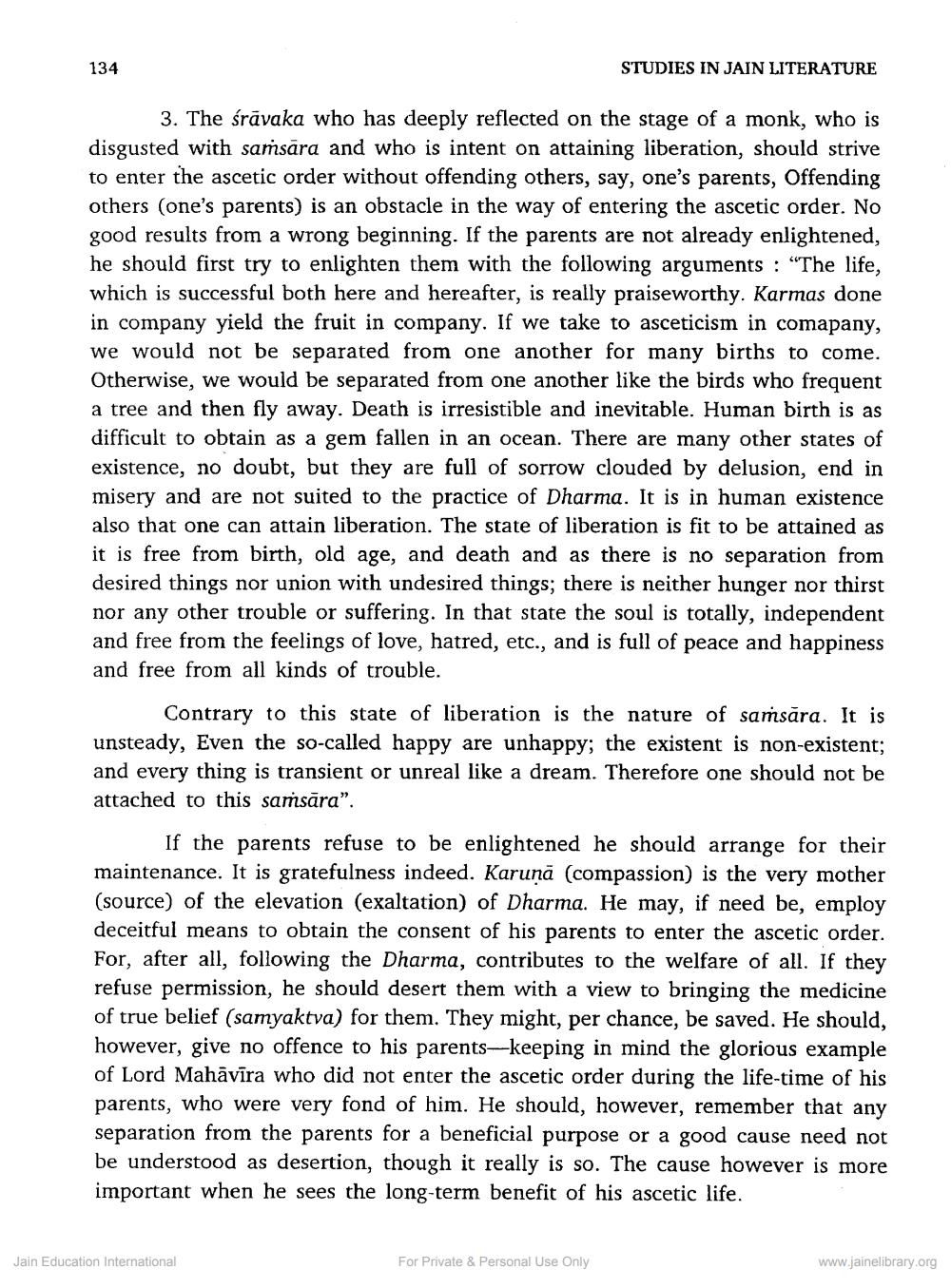________________ 134 STUDIES IN JAIN LITERATURE 3. The sravaka who has deeply reflected on the stage of a monk, who is disgusted with samsara and who is intent on attaining liberation, should strive to enter the ascetic order without offending others, say, one's parents, Offending others (one's parents) is an obstacle in the way of entering the ascetic order. No good results from a wrong beginning. If the parents are not already enlightened, he should first try to enlighten them with the following arguments : "The life, which is successful both here and hereafter, is really praiseworthy. Karmas done in company yield the fruit in company. If we take to asceticism in comapany, we would not be separated from one another for many births to come. Otherwise, we would be separated from one another like the birds who frequent a tree and then fly away. Death is irresistible and inevitable. Human birth is as difficult to obtain as a gem fallen in an ocean. There are many other states of existence, no doubt, but they are full of sorrow clouded by delusion, end in misery and are not suited to the practice of Dharma. It is in human existence also that one can attain liberation. The state of liberation is fit to be attained as it is free from birth, old age, and death and as there is no separation from desired things nor union with undesired things; there is neither hunger nor thirst nor any other trouble or suffering. In that state the soul is totally, independent and free from the feelings of love, hatred, etc., and is full of peace and happiness and free from all kinds of trouble. Contrary to this state of liberation is the nature of samsara. It is unsteady, Even the so-called happy are unhappy; the existent is non-existent; and every thing is transient or unreal like a dream. Therefore one should not be attached to this samsara". If the parents refuse to be enlightened he should arrange for their maintenance. It is gratefulness indeed. Karuna (compassion) is the very mother (source) of the elevation (exaltation) of Dharma. He may, if need be, employ deceitful means to obtain the consent of his parents to enter the ascetic order. For, after all, following the Dharma, contributes to the welfare of all. If they refuse permission, he should desert them with a view to bringing the medicine of true belief (samyaktva) for them. They might, per chance, be saved. He should, however, give no offence to his parents--keeping in mind the glorious example of Lord Mahavira who did not enter the ascetic order during the life-time of his parents, who were very fond of him. He should, however, remember that any separation from the parents for a beneficial purpose or a good cause need not be understood as desertion, though it really is so. The cause however is more important when he sees the long-term benefit of his ascetic life. Jain Education International For Private & Personal Use Only www.jainelibrary.org




